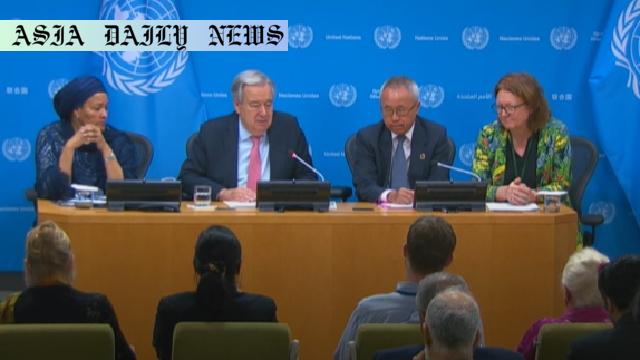SDGs (Sustainable Development Goals): The UN report reveals only 18% of SDGs are on track for 2030, with targets in crisis.
– Only 18 percent of SDG targets are on track for achievement by 2030.
– 17 percent of goals have made no progress while another 18 percent have regressed below 2015 levels.
– The UN cites global hunger, poverty, and climate impacts as critical barriers.

Introduction: A Grim Update on SDGs
The United Nations recently released the Sustainable Development Goals (SDGs) Report 2025, shedding light on the urgent challenges facing global development efforts. According to the report, only 18% of the SDG targets are on track for success by the 2030 deadline. This sobering revelation calls attention to the pressing global issues of poverty, hunger, climate change, and inequalities that continue to hinder progress.
Progress Analysis: Key Findings from the Report
The report categorizes progress into varying degrees, with only a fifth of the goals making satisfactory strides forward. While 17% of the targets have shown moderate progress, concerning trends emerged for the remaining categories. Alarmingly, 17% of goals remain stagnant, and 18% have regressed below the 2015 baseline – reversing efforts instead of advancing them.
Among the most alarming insights is the sharp rise in global hunger since 2019. Despite ambitious aims to eradicate hunger, the consistent rise in food insecurity reflects an urgent need for systemic change. Additionally, persistent extreme poverty continues to impact over 800 million people globally, underscoring the scale of human suffering.
Call to Action: A Path Forward
UN Secretary-General Antonio Guterres called for immediate collaborative action, stating, “We are in a global development emergency.” He emphasized the critical need for global cooperation to overcome intensifying climate impacts, hunger crises, and economic disparities. Doubling down on international commitments and investments in sustainable development can steer progress in the right direction. The next five years will determine whether humanity can recover lost momentum to meet the 2030 development goals.
Conclusion: Time is Running Out
With less than seven years remaining, the UN warns that urgent measures are required to counteract the devastating trends threatening global SDGs. The report underscores systemic reform and collective global efforts as essential to paving the way towards equitable development outcomes. Governments, organizations, and individuals must act swiftly to ensure a brighter future that aligns with both moral imperatives and the sustainability of the planet.



Commentary
A Critical Diagnosis of Sustainable Development Efforts
The revelations from the United Nations’ latest SDG report force us to confront the reality that global development efforts are failing to meet expectations. Targets that were set with optimism in 2015 now stand as grim reminders of unmet promises. Only 18% of SDGs are on track, but what does that mean for the billions of people who banked on these outcomes to alleviate poverty, hunger, and other inequalities?
Failed Progress Reflects Broader Issues
The SDG framework is ambitious but necessary, targeting humanity’s most pressing challenges. However, reversing growth in key areas, such as hunger and poverty, highlights systemic failings. Global hunger rising despite robust international mechanisms to tackle food insecurity reveals troubling inefficiencies. These outcomes are not merely bureaucratic failures but affect real people whose lives depend on these promises.
A Glimmer of Hope Amidst Stern Warnings
Solutions remain within reach, but the world needs urgency. Secretary-General Guterres’ poignant words rightly classify this as a “development emergency.” Progress may have faltered, but hope should not. By fostering international cooperation, funding sustainable projects, and addressing policy failures, the global community still has the power to realign with its goals. We must remember that the SDGs are not just targets on paper; they are commitments to humanity’s collective future.